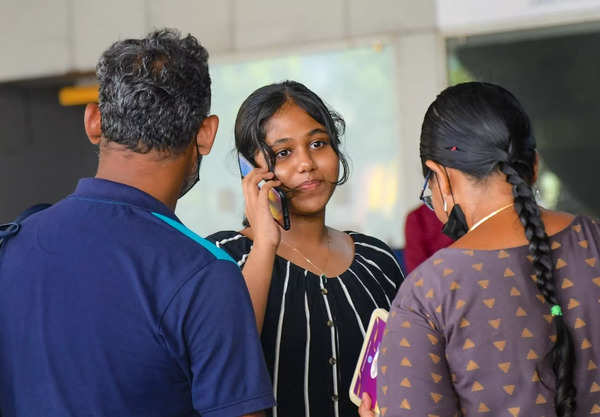- News
- City News
- vadodara News
- Gujarat may finally take sting out of malaria
Trending Topics
Gujarat may finally take sting out of malaria

Number of malaria cases in the state for the past three years has also remained below 5,000 a year
VADODARA: Amid the frequent scare of dengue and chikungunya outbreaks in the state, here’s some good news on our battle with mosquitoes. Malaria, another mosquito-borne disease, may be soon a ‘sting’ of the past.
Incidentally, the number of malaria cases in the state for the past three years has also remained below 5,000 a year.
Gujarat, which has been eyeing elimination of malaria, has now been included among the states that are in the elimination phase for the most common of the vector-borne diseases. These states and Union territories are classified in the Category 1.
Till recently, the state was in Category 2, a classification used for states and Union territories in the pre-elimination phase.
A recent research paper by a scientist with the National Institute of Malaria Research, Dr Arvind Nath, published in the Asian Journal of Advances in Research points out that Gujarat is a good candidate for being among the first few states in the country close to being able to achieve near-elimination goals. However, it came with a rider. This will be possible if only the state can control malaria in Ahmedabad city!
The paper has made the observations using malaria statistics available from various resources. While the study relies on the 2018 data for arriving at the conclusion, the number of malaria cases reported in the state after this has gone down further.
In 2018, 22,114 malaria cases were reported in the state as per National Centre for Vector-Borne Diseases Control (NCVBDC). Against this, provisional data for 2022 indicates that the number of cases has gone down to 4,766 cases in 2022. Since 2020, the number of cases has consistently remained below 5,000 and no deaths were reported due to malaria in 2021 and 2022.
Former professor of community medicine at the Baroda Medical College, Dr V S Majmudar agreed that malaria could be eliminated over a period of time. “A major reason is the access to healthcare that ensures early treatment. If a person has malaria and is not treated for a long time, the chances of it getting transmitted are higher. Today, if the there are symptoms, doctors do not wait for test results to start anti-malarial treatment,” he said.
Incidentally, the number of malaria cases in the state for the past three years has also remained below 5,000 a year.
Gujarat, which has been eyeing elimination of malaria, has now been included among the states that are in the elimination phase for the most common of the vector-borne diseases. These states and Union territories are classified in the Category 1.
Till recently, the state was in Category 2, a classification used for states and Union territories in the pre-elimination phase.
A recent research paper by a scientist with the National Institute of Malaria Research, Dr Arvind Nath, published in the Asian Journal of Advances in Research points out that Gujarat is a good candidate for being among the first few states in the country close to being able to achieve near-elimination goals. However, it came with a rider. This will be possible if only the state can control malaria in Ahmedabad city!
The paper has made the observations using malaria statistics available from various resources. While the study relies on the 2018 data for arriving at the conclusion, the number of malaria cases reported in the state after this has gone down further.
In 2018, 22,114 malaria cases were reported in the state as per National Centre for Vector-Borne Diseases Control (NCVBDC). Against this, provisional data for 2022 indicates that the number of cases has gone down to 4,766 cases in 2022. Since 2020, the number of cases has consistently remained below 5,000 and no deaths were reported due to malaria in 2021 and 2022.
Former professor of community medicine at the Baroda Medical College, Dr V S Majmudar agreed that malaria could be eliminated over a period of time. “A major reason is the access to healthcare that ensures early treatment. If a person has malaria and is not treated for a long time, the chances of it getting transmitted are higher. Today, if the there are symptoms, doctors do not wait for test results to start anti-malarial treatment,” he said.

About the Author
Sachin SharmaSachin Sharma is special correspondent at The Times of India, Vadodara. He reports on politics, civic issues, Vadodara Municipal Corporation and Panchmahal district. He also reports on crime frequently. His areas of interest include following the debates on major issues on TV, following election coverage of all significant polls in the country, Bollywood movies, cricket, international football, spending time with friends and reading on current affairs.
Start a Conversation
FOLLOW US ON SOCIAL MEDIA
FacebookTwitterInstagramKOO APPYOUTUBE










